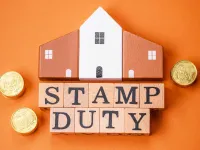Here at Winston Solicitors, we can act for you if you decide to buy property for investment purposes.
How to plan your buy to let purchase
You will need to plan your buy to let purchase carefully. This will involve:
Choosing a mortgage broker/financial advisor
Ask friends or colleagues to recommend a mortgage broker or financial advisor or contact your bank or building society directly. They should be able to discuss the affordable options with you and help you choose the best mortgage to suit you.
Obtaining tax advice
You will be liable to pay Stamp Duty Land Tax at the higher rate if you will own more than one property on completion. Your conveyancer will complete the Land Transaction Return (Stamp Duty Land Tax Form) for you to sign, based on the information that you provide. If you think that you do not need to pay the higher rate, you should obtain specialist tax advice from an accountant or financial advisor.
You should also ask your accountant or financial advisor to provide income tax advice and capital gains tax advice.
Choosing the right property
Think carefully before choosing a property to invest in. Would you prefer a newer property or an older property? An older property might give you the opportunity to add more value.
If the property is let, or is going to be let, to more than three people who are not from the same family, it will be a House in Multiple Occupation (HMO). You will need to comply with all the rules and regulations relating to HMOs. Some lenders will not lend on HMOs.
Check your lender’s requirements
Your lender will impose additional “Buy to Let” conditions, which will include conditions relating to the type of tenancy agreement and the nature of the tenant. For example, some lenders will not lend on HMOs (see above) or on student lets, and many lenders will require short term assured shorthold tenancy agreements. You should check your lender’s requirements with your mortgage broker/financial advisor or your lender.
Choosing a surveyor
Ask friends or colleagues to recommend a surveyor. Your surveyor will be able to carry out a survey and tell you how much rent the property is likely to yield.
Considering existing tenancy agreements
- Any existing tenancy agreement must comply with the lender’s requirements. Any deposit paid by the tenant must be registered with an approved deposit protection scheme.
- Up to date gas certificates and electrical certificates must be supplied.
- All other relevant rules and regulations must be complied with.
- Your conveyancer will raise appropriate tenancy enquiries and will discuss the replies with you.
Budgeting for costs and fees
You will need to budget for all the costs and fees relating to your investment purchase, including your survey fees, mortgage broker’s fees (if any), buy to let property insurance, legal fees and stamp duty land tax.
Choosing and communicating with your conveyancer
Speak to family, friends and colleagues, to see if they can recommend a good conveyancer. You need to have confidence in your conveyancer. A good conveyancer will ensure that the process is as smooth as possible but will also raise all necessary enquiries. The process will involve form filling, document signing, telephone calls and emails.
You will be speaking to your conveyancer a lot during the process. Your conveyancer will be able to reassure you and address any concerns that you have.
When you are purchasing a property it is advisable to make or update your will to ensure any assets in your estate are distributed as you choose.
Ask for a free conveyancing quote by calling our conveyancing team on 0113 320 5000.








